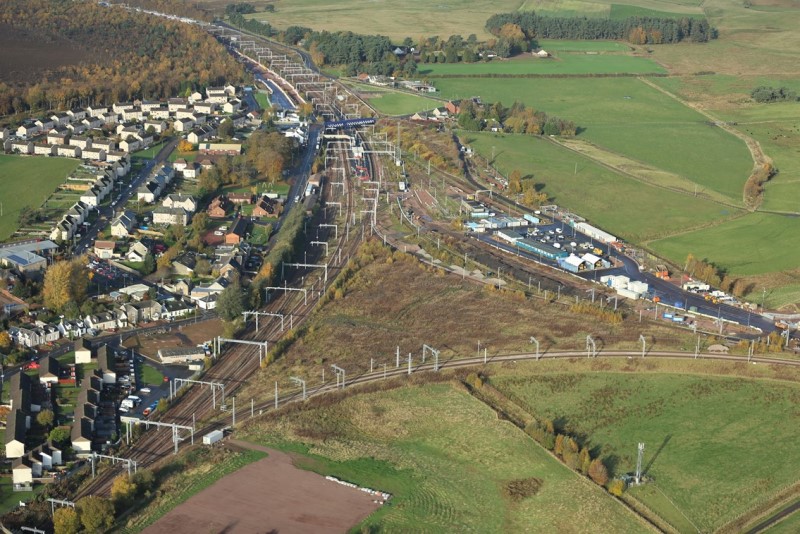Network Rail announces £164m overhaul for key cross-border rail line

The West Coast main line will close for 16 days in March as Network Rail engineers deliver a vital programme of work to upgrade Carstairs Junction.
The closure of the line, between March 4 and March 19, is the first phase of a three-month programme of work which will also see trains diverted and journey-times extended between March and June for all services between Glasgow/Edinburgh and Carlisle.
The work is part of a £164 million Scottish Government investment to modernise the key junction for passenger and freight services.
It will also see the creation of Scotland’s largest freight loop, capable of accommodating 775m-long freight trains to help more businesses move goods off the road and onto rail to help achieve the Government’s Net Zero targets. Engineers will simplify and upgrade the track-layout to clear an existing bottleneck on the network, making it more reliable and able to better cope with passenger and freight demands.
Work on this strategically important route will be complex and Network Rail will complete it in three phases designed to manage the effect on services in the least disruptive way.
During the first phase of the project – between Saturday March 4 and Sunday March 19, there will be no direct services to Glasgow Central and Edinburgh on the West Coast main line through Carstairs. Phase two of the work, taking place between Monday March 20 and Friday April 21, will see part of the junction re-opening, allowing some trains to run directly to Edinburgh – and via diversion routes to Glasgow – on weekdays, however, journey times will be longer than normal. The final phase, between Saturday April 22 and Sunday June 4, will see most services return to normal during weekdays with the junction fully closed each weekend.
During the later phases of the project, there will be no direct services between Glasgow Central or Edinburgh and Carlisle on the West Coast main line each weekend.
The closure of the junction will affect cross-border operators including, Avanti West Coast, Caledonian Sleeper, CrossCountry Trains, London North Eastern Railway and TransPennine Express, who will be operating via diversionary routes or offering alternative journey options during this time.
Services operating on the East Coast main line during this time are also likely to be busier than normal. There will be no ScotRail services to or from Carstairs for the full three-month period. ScotRail will run a range of alternative journey options throughout with Carstairs station re-opening on Tuesday May 30.
Liam Sumpter, route director, Network Rail Scotland, said: “Carstairs Junction is coming to the end of its life cycle and with the volume of freight and passenger trains passing through each week it’s important that we modernise this part of the network.
“By completing this crucial upgrade work we will improve the capabilities and reliability of this strategically important junction, providing better future journeys for passengers and more capacity for freight.
“There’s never a good time to close such an important line but this is a huge and extremely complex piece of work that will safeguard the future of the route for years to come. We appreciate that this will cause some inconvenience and would like to thank customers for their patience during this time.”
Carstairs junction sits 26 miles to the south-east of Glasgow on the West Coast main line. Currently the junction requires regular maintenance work as much of the infrastructure through the area is reaching the end of its operational lifespan. Speed restrictions are often imposed which can affect performance.
The layout of the junction is no longer suited to today’s pattern and volumes of service with 200+ services passing through the junction on an average midweek day.
Enabling works for the project have been underway since 2020 and the work delivered during the line closure will see over 200 engineers working 24/7 to upgrade the junction.
The new power supply being installed will allow engineers to switch off the overhead lines remotely to carry out maintenance, reducing the amount of time the railway is closed in future. The improvements will also bring reduced overall journey times through the removal of a 50mph speed restriction.





















